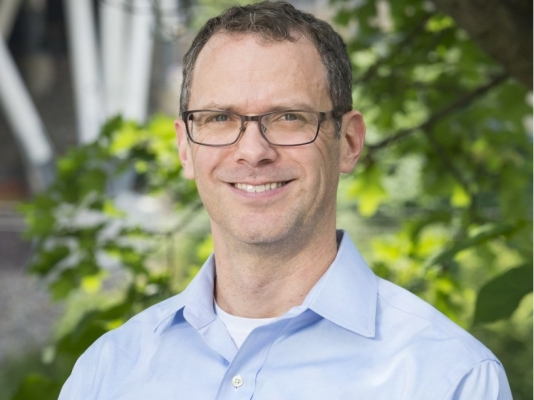Jay Whitacre is the Next Speaker in the Mudd Lecture Series Jay Whitacre, director of The Wilton E. Scott Institute for Energy Innovation and trustee professor in energy engineering and public policy at Carnegie Mellon University, will give a lecture on Feb. 10 at 5 p.m.
Jay Whitacre, director of The Wilton E. Scott Institute for Energy Innovation and trustee professor in energy engineering and public policy at Carnegie Mellon University, will give a lecture on Feb. 10 at 5 p.m. as part of Washington and Lee University’s Mudd Center for Ethics series on “Daily Ethics: How Individual Choices and Habits Express Our Values and Shape Our World.”
Whitacre’s lecture, which is free and open to the public, is titled “The Criticality of Technical Honesty in Growing Energy Technology Companies: How Even the Best Intentions Can Lead to Ruin.” The event will take place in Stackhouse Theater, and tickets are not required. The lecture will also be available to view via Livestream here.
“Jay Whitacre will bring two unique perspectives to our year-long consideration of daily ethics. First, as a materials scientist, he has crafted his professional life to address one of the most complex ethical issues that we face: the need for environmentally sustainable energy sources,” said Karla Murdock, director of the Mudd Center. “Thus, he can speak to the choices that have informed and enabled this professional path. Also, as an entrepreneur, he has navigated the ethical challenges of developing innovative products for energy storage and the systems that support them. His talk will help us to consider the process of bringing these new technologies into our lives.”
Whitacre earned a doctorate degree in materials science and engineering at the University of Michigan. He was a senior member of the technical staff at the NASA Jet Propulsion Laboratory prior to joining the faculty at Carnegie Mellon University. There, he was trained as a systems engineer and became a member of several mission design groups as well as the Mars Science Laboratory development team.
Whitacre has authored or co-authored more than 110 articles and is listed as an inventor on more than 35 patents that are issued or pending. In 2008, he founded Aquion Energy, which brought to market a new non-toxic energy storage product that provides long-term storage of energy from solar, wind and other intermittent sources at a low cost.
Whitacre was listed as one of the top 25 Eco-Innovators in the world by Fortune Magazine in 2014 and was the 2015 winner of the $500,000 Lemelson-MIT Prize for Innovation. He has since served as director of the Wilton E. Scott Institute for Energy Innovation at Carnegie Mellon University while continuing to conduct research.
The primary focus of Whitacre’s research is developing and analyzing new materials and systems for electrochemical energy storage and conversion. He also studies the policy aspects of materials and technologies for the energy sector, such as the economics of scaled production, lifecycle analyses (including analyzing the energy footprint of manufacturing energy-related products), the implications of broad adoption of new energy technologies, large-scale energy storage devices and concurrent engineering analyses of power systems.
The Mudd Center was established in 2010 through a gift to Washington and Lee from award-winning journalist Roger Mudd, a 1950 graduate of the university. By facilitating collaboration across traditional institutional boundaries, the center aims to encourage a multidisciplinary perspective on ethics informed by both theory and practice. Previous Mudd Center lecture series topics have included Race and Justice in America, The Ethics of Citizenship, Markets and Morals, Equality and Difference, The Ethics of Identity and The Ethics of Technology.
 Jay Whitacre
Jay Whitacre
You must be logged in to post a comment.